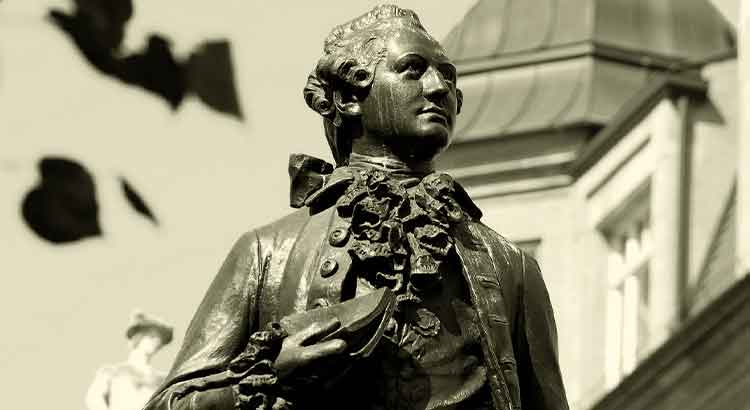I had the pleasure of reading Faust, by Goethe, in the translation of one of the masters of Portuguese language: António Feliciano de Castilho. First, on translation: historically, my almost unique criterion for choosing translations has been to seek them directly from the original, judging that, thus, the new work garners greater fidelity to the basis-work. Today I see that, undoubtedly, I have always neglected the determining factor of a translation: the quality of the translator as a poet. Petty habit of looking for the cheapest books… Translations are distinct works, almost separate from the original ones, so the translator, if he risks the difficult work of putting in his language the verses of great foreign poets, must also be a great poet. And Castilho, repeating, is one of the masters of the Portuguese language. It was surprising to me to know that in his Portuguese version of Faust, Castilho did not derive from the original German, but mediating three Portuguese and four French versions. The result was a beautiful poem. In fact, if we see the expressive resources, the melody of languages as irreplicable, — and they are, — derive or not from the original loses preponderance over the quality of the translator poet. Now on Faust: the work, composed over sixty years by Goethe, dates from almost two centuries ago. How not to empathize, or: how not to take on Dr. Faust’s problem like ours? At first, the obsessive search for knowledge: to some extent, it is impossible for us not to judge it as fruitless and vain. Then the perhaps natural consequence: the loss of pleasure, satisfaction, charm for the earthly life. After: the absence of fear, insubmission, the revolt of the spirit and, of course, helplessness. What to expect from this life? Does it make sense to act? Is the earthly life somehow virtuous? Is there, at last, redemption for this sick species who has become known as a modern man? Goethe, in Faust, makes music while risking admirable answers.
____________
Read more:
